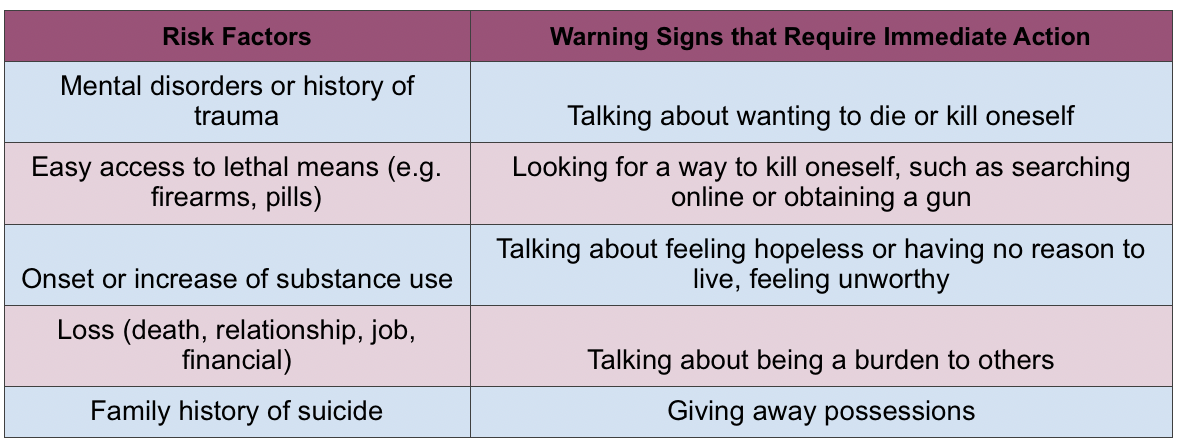The need for more mental health and substance abuse resources has been highlighted and is now at the forefront of our conversations at all levels. Since the beginning of the pandemic, people have been intentionally reaching out to others to offer support and experts have seen a significant increase in crisis calls and hospitalizations due to mental health challenges. At the same time, the number of overdoses, particularly those caused by opioids, has also skyrocketed. The Center for Disease Control and Prevention (CDC) calculated a 32% increase in overdose deaths from 2019 to 2020. In Newton County, there were 50 suspected overdoses this year alone, between Jan. 1 and July 28. Thirty-six were reversed with Naloxone (Narcan), a life-saving medication that temporarily blocks the effects of opioids, allowing time for the person to receive professional help. What we are witnessing is a direct correlation between mental health and substance abuse. Some people will turn to substance use to escape from overwhelming emotions, and substance use is also a major risk factor for suicide.
Suicide is incredibly complex and does not have one cause or solution. Suicide is also non-discriminatory and is found in all ages and ethnic groups. There are populations that are affected at a higher rate such as first responders, veterans, those in the construction and the LGBTQ+ communities. Trauma and societal factors also contribute to the pressures that individuals face each day. The start or increase of substance use as a means to escape other compounding factors (i.e. trauma, societal factors) feeds into the hopelessness that someone may feel when considering suicide. Hopelessness is a key element that is commonly shared among people with suicidal thoughts. It is a feeling of deep despair and belief that life cannot get better and is one of the greatest risk factors of suicide. It is also one of the factors that easily allow us to support someone facing a mental health crisis or considering suicide – by offering hope.
Below will offer some common risk factors and warning signs you might notice. This is not an exhaustive list and clues and warning signs are unique to each individual.


The good news is that there are also multiple protective factors that support people and may be readily available including: effective behavioral health care, connectedness to individuals, family, community, and social and emotional wellbeing.
Some examples of practical activities that contribute to overall mental wellbeing can include unplugging from electronics and social media, modeling positive behaviors, listening nonjudgmentally, engaging with others, taking breaks or having “me time.”
There are many resources available in the community to help support those in need including the National Suicide and Crisis Lifeline that was recently changed to just three digits: 988 for call and text options. It is available 24/7 year-round and offers help by connecting individuals with suicide prevention and mental health crisis resources.
Georgia also has the Georgia Crisis and Access Line (GCAL). While 988 will automatically direct Georgia callers to GCAL and offers a much easier crisis number to call, there is also an app available for download on all platforms. The MyGCAL app allows users to chat or text trained professionals.
Some other local resources include: The Newton/Rockdale Suicide Prevention Coalition, View Point Health, Newton Family Connection, Newton Community Action Network, National Alliance on Mental Illness (local chapters) and free trainings in mental health, suicide prevention and overdose prevention. Please go to www.zerosuicidecommunities.com for more information on resources, trainings and ways to connect.
Additionally, please join us Sept. 17 from 4 to 7 p.m. on Covington Square. The Newton/Rockdale Suicide Prevention Coalition is hosting its third annual Sounds of Support event. It is a multi-generational, multi-genre event featuring supportive and empowering songs, poetry, and experiences to encourage and promote connectedness and suicide prevention. In addition to the concert, the event will highlight local organizations providing whole health resources for everyone to help create a stronger community. Bring your dancing shoes to boogie down or your beach chair to sit back and relax. Whatever you decide to do, we will all enjoy an early fall day in the park to celebrate hope and life.
The most critical component is you! You can help save a life by listening, asking questions if you think someone is at risk, knowing the resources that are available, reducing access to lethal means (prescriptions, firearms, knives), getting connected to treatment for yourself or helping find treatment for loved ones and getting people connected to enjoyable community activities and events. Help us create communities of hope where zero lives are lost to suicide!!!
Jennifer Wilds is a Program Manager with View Point Health and is involved with multiple professional affiliations including multiple Local Interagency Planning Teams, The Newton / Rockdale Suicide Prevention Coalition and local Drug Free Community Coalitions. She is a certified trainer for QPR (Question, Persuade, and Refer for suicide prevention) and Youth Mental Health First Aid and is an advocate for youth and families on personal, county and state levels.
Amira Abdulhafid works with GUIDE, Inc. as the Program Director for Suicide Prevention. Amira focuses on increasing awareness and resources for suicide prevention, including evidence-based suicide prevention trainings, such as QPR (Question, Persuade, Refer) and Youth Mental Health First Aid, in Gwinnett, Newton and Rockdale counties.







